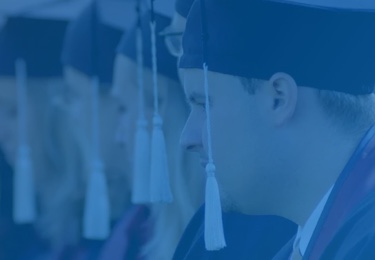PhD position (Photocatalytic membranes for contaminant removal) - Multiple positions are availableFull PhD
English
Working Language
Eggenstein-Leopoldshafen
Location
12 Nov 2024
Application Deadline
as soon as possible
Starting Date
Content Navigation
Overview
Open Positions
5
Time Span
as soon as possible for 3 years
Application Deadline
12 Nov 2024
Financing
yes
Type of Position
Full PhD
Working Language
English
Required Degree
Master
Areas of study
Chemical Engineering, Process Technology, Environmental Engineering
Description
Description
This PhD project builds on ongoing research projects in the area of photocatalytic membranes at IAMT. Current work will be expanded to (select) novel materials and membrane preparation methods for photocatalytic membrane development. The project will focus on i) photocatalyst selection, looking beyond the most commonly used materials, ii) exploring options of catalyst deposition and coating, iii) investigation of system design from small-scale to potentially pilot scale, and iv) application to micropollutant removal. Modelling aspects are open to exploration at molecular and process scale.
There are many aspects of this project, that require in-depth research and development, including:
- Can a photocatalytic membrane fully degrade contaminants and how can full degradation be verified?
- What are the most suitable photocatalytic material characteristics for micropollutant degradation in water and what are selection criteria / tools?
- What are the mechanisms behind membrane photocatalysis and how can these be quantified?
The PhD project will be largely experimental and will begin with an identification of a set of research questions based on detailed literature survey. The preliminary research proposal required for application with a timetable for the four-year research project. Required equipment will be set up and further development of relevant analytical methods will follow. Establishment of suitable models to explain the results obtained drawing of interdisciplinary and potentially multi-scale approaches will be an opportunity to integrate experiment and model. Execution of the research plan through conducting of experiments, sample and data analysis and write up of results for scientific publication are part of the PhD process – a journey to become an independent researcher!
Throughout the project, there will be multiple opportunities for cooperation with internal and external partners, supervising Master students, giving oral presentations at conferences, writing high-impact journal articles, as well as sharing your knowledge via teaching.
Qualifications
The candidate will hold a Masters in Chemical, Process, Environmental Engineering, or equivalent, and is a naturally curious person who is eager to learn more and has a strong interest in research. Experience with membrane filtration systems (of any scale) is a definite advantage, as well as being comfortable in specifying system components and sound experimental problem solving skills – as well a good common sense. Excellent English language proficiency is essential, basic German language skills of advantage.
About KIT
KIT is one of the biggest research institutions worldwide and has access to state-of-the art research facilities resulting from the merger of the National Research Centre of the Helmholtz Association and the former Technical University of Karlsruhe. This project is hosted by the Institute for Advanced Membrane Technology (IAMT) that collaborates on the topic of photocatalysis and renewable energies with Prof. Dr. Bryce Richards who leads the Nanophotonics for Energy group (IMT & LTI). The PhD will be registered in the Faculty of Chemical and Process Engineering.
Contact
Prof. Dr.-Ing. Andrea I. Schäfer, Institute for Advanced Membrane Technology (IAMT), +49(0)721 608 26906, Andrea.Iris.Schaefer at kit.edu , https://www.iamt.kit.edu.
Applications
Multiple positions are available!
Please send applications with CV, publication list and your contribution to the publication (if relevant), academic transcripts, degree certificates, contact details for three references and a preliminary research proposal to the above contact. A valid driver’s license will be required.
Required Documents
Required Documents
- Motivation letter
- CV
- Certificates
- Transcripts
- List of publications
- References
